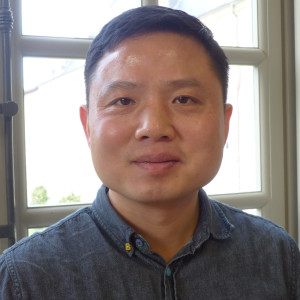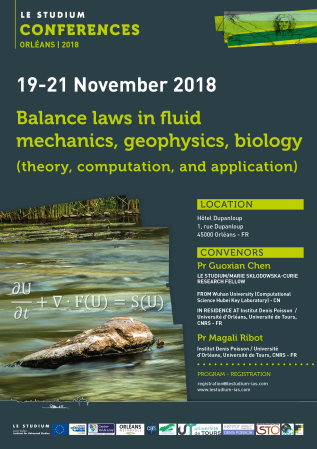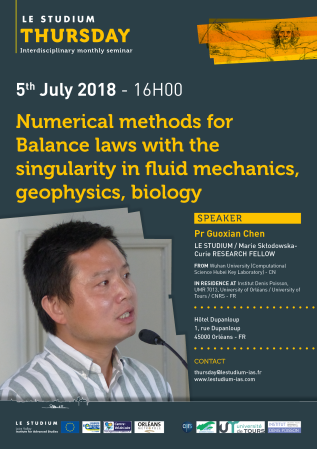Prof. Guoxian Chen

LE STUDIUM / Marie Skłodowska-Curie Research Fellowship
From
Wuhan University (Computational Science Hubei Key Laboratory) - CN
In residence at
Institut Denis Poisson, UMR 7013, University of Orléans / University of Tours / CNRS - FR
Host scientist
Prof. Magali Ribot
PROJECT
Numerical simulation of singular conservation laws and related applications
Several phenomena in physics, biology or fluid mechanics are classically modelled by hyperbolic systems of conservation laws. In realistic applications, such as hydrology and chemotaxis, stiff source terms and nonconservative products arise in the equations. This leads to serious numerical challenges concerning efficiency and stability of the numerical simulations. The aim of the project is to take the opportunity to implement a new numerical method developed by the applicant in the models used in the MAPMO laboratory, in which a team works specifically on hydrology and chemotaxis.
Publications
Final reports
We design a scheme for the Euler equations under gravitational fields based on our subcell hydrostatic reconstruction framework.
To give a proper definition of the nonconservative product terms due to the gravitational potential, we first separate the singularity to be an infinitely thin layer, on where the potential is smoothed by defining an intermediate potential without disturbing its monotonicity ; then the physical variables are extended and controlled to be consistent with the Rayleigh-Taylor stability, which contribute the positivity-preserving property to keep the nonnegativity of both gas density and pressure even with vacuum states. By using the hydrostatic equilibrium state variables the well-balanced property is obtained to maintain the steady state even with vacuum fronts. In addition, we proved the full discrete discrete entropy inequality, which preserve the convergence of the solution to the physical solution, with an error term which tends to zero as the mesh size approaches to zero if the potential is Lipschitz continuous. The new scheme is very natural to understand and easy to implement.
The numerical experiments demonstrate the scheme's robustness to resolve the nonlinear waves and vacuum fronts.



